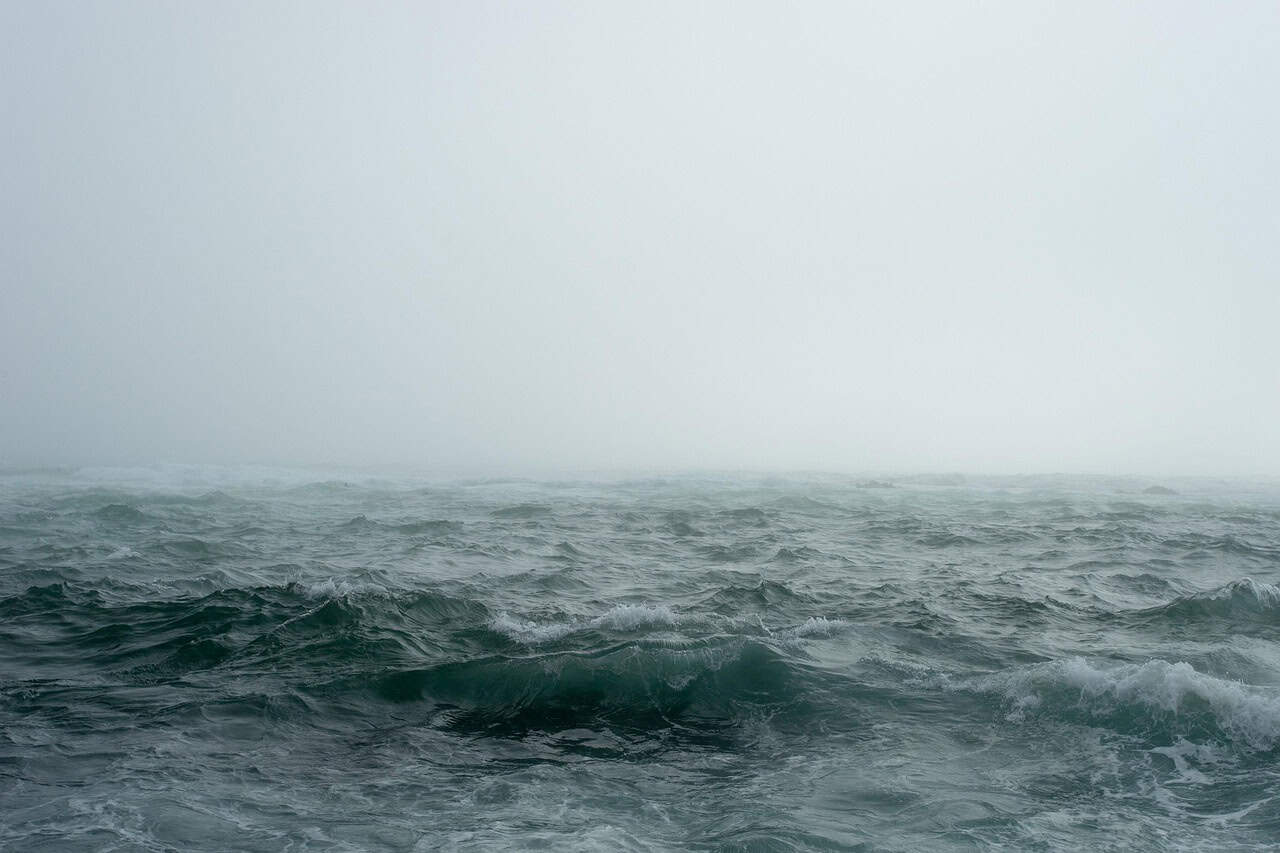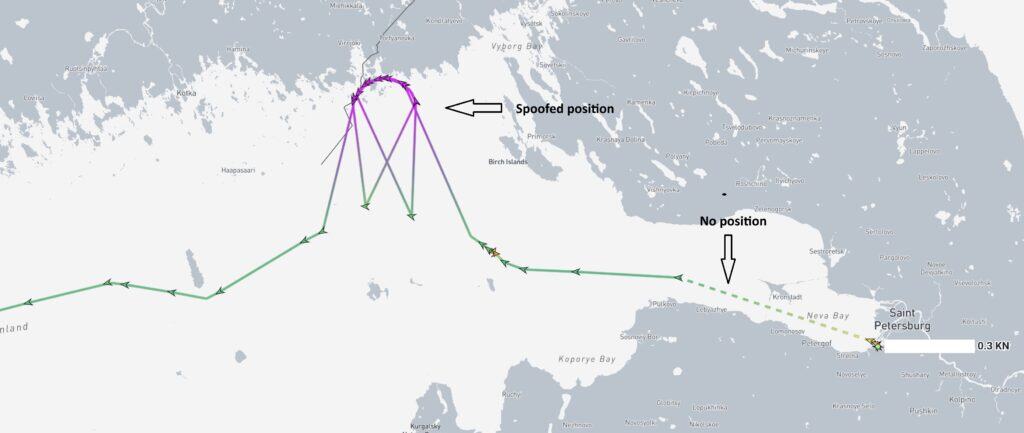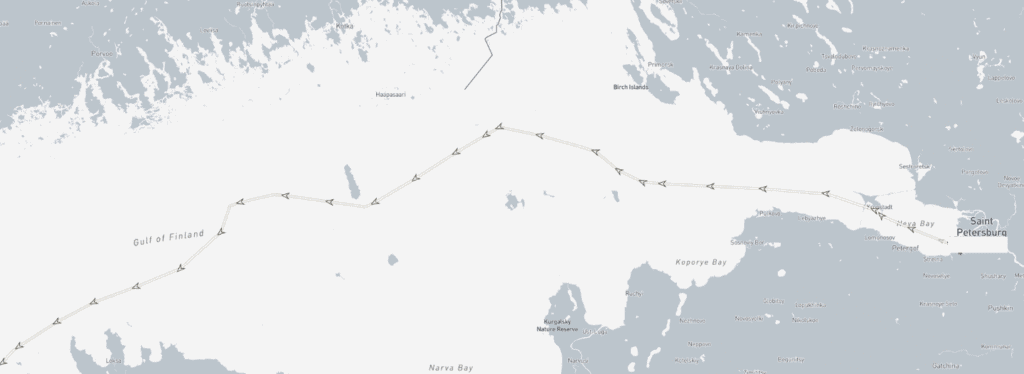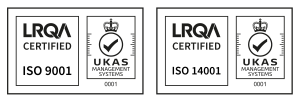
In a recent field test aboard a test vessel operating between Tallinn and St. Petersburg, SAL SPU-200 was exposed to sustained, real-world GNSS interference—including both deliberate jamming (complete signal loss) and spoofing (false signals). The test was designed to validate whether SPU-200 could actively protect vessel navigation under real jamming and spoofing attacks—and how it would perform compared to conventional systems under the same conditions. Despite sustained interference, the system maintained reliable, high-precision positioning throughout the test.
This field trial was conducted in close cooperation with our trusted partner Hansael SIA, who played a key role in facilitating the test and gathering operational insights from the region.
The image below illustrate real-world GNSS interference encountered during the Baltic Sea trial. AIS data from MarineTraffic shows that a nearby vessel—kept anonymous for confidentiality—was first subject to spoofing, displaying false positions inconsistent with its actual course, followed by a complete GNSS signal loss likely caused by deliberate jamming.

In contrast, the test vessel equipped with the SAL SPU-200 maintained a stable and accurate position throughout the same period, despite operating in the same high-risk area.

“We’re seeing a growing number of vessels in the Baltic Sea reporting challenges related to GNSS jamming and spoofing—often resulting in disrupted positioning and reduced situational awareness. In this case, the crew of the vessel reported that they were able to maintain a stable and accurate position throughout the voyage, even while other vessels in the same area were visibly affected. That kind of operational consistency under interference is what sets the SAL SPU-200 apart.”
— Olegs Orlovs, Managing Director, Hansael SIA
Escalating GNSS Threats in the Baltic and Other Key Maritime Regions
GNSS jamming and spoofing are growing concerns for the maritime sector, impacting safety, operational continuity, and situational awareness. As these invisible threats intensify—particularly in geopolitically sensitive waters, the need for protective technologies has become a critical priority.
Windward’s analysis links the rise in interference to ongoing geopolitical tensions, with regions such as the Arabian Gulf and Strait of Hormuz experiencing widespread disruptions to vessel positioning. The Baltic Sea is also increasingly affected, with growing reports of navigation anomalies and GNSS signal loss, as reported by The Baltic Times
Results From the Field
“This is exactly what SPU-200 is engineered for — not just detecting threats but protecting vessel operations in the face of escalating GNSS interference.”
— Johan Fjäder, Chief Commercial Officer, SAL Navigation
Advanced Protection for Modern Navigation with SAL SPU-200
Proven Resilience – Even Under Extreme GNSS interference
SAL SPU-200 has been validated both in real-life GNSS interference during field trials in the Baltic Sea and through large-scale GNSS jammer testing at Andøya—home to the world’s largest open GNSS resilience trials. Equipped with optional advanced CRPA antenna technology, the system has demonstrated superior performance in trials at Andøya when tested along with traditional SOLAS class GPS/GNSS systems and exposed to scenarios typical of regions affected by geopolitical conflict and high-power jamming.
Read more: SAL SPU-200
Get in touch at sales@salnavigation.com
About Hansael SIA: Hansael SIA is a leading maritime navigation and telecommunications provider, delivering and installing seamlessly integrated solutions since 2004. Based in Riga, Latvia, Hansael supports shipowners and operators with proven expertise, high service standards, and a strong focus on operational reliability. As a trusted regional partner to leading maritime technology brands, Hansael plays a key role in enabling safe and future-ready vessel operations.
Contact: hansael@hansael.eu
Learn more: www.hansael.eu
